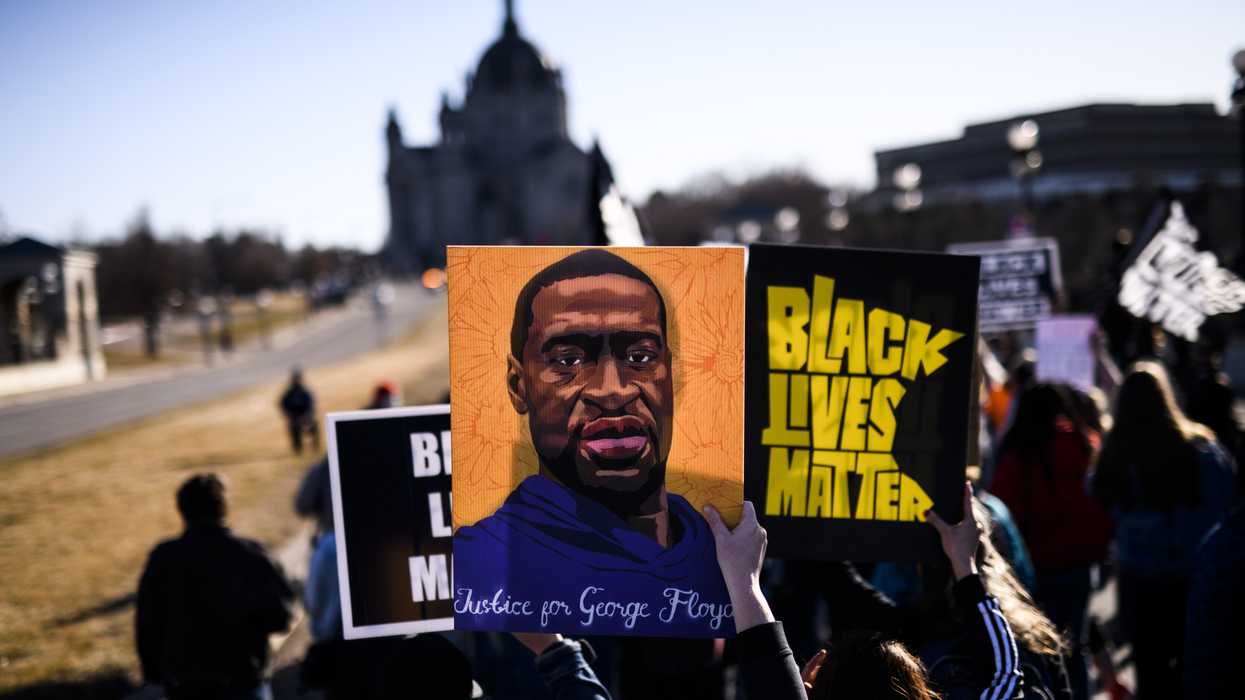The house of the American republic is tottering. Once unthinkable, it’s now undeniable that our shared home has deteriorated the same way you go broke: gradually, then suddenly. At the time it was built, We the People gave our house a sound design, sturdy and innovative by the standards of the day. It’s stood strong over the generations, holding fast through many seasons and storms. But like all old homes, our house needs fixing: The roof leaks. The plumbing’s rusted. The wiring’s quite out of date. And most troublingly, it’s become apparent that the foundation—the federal Constitution—is no longer stable. Partisan warfare, institutional neglect, and systemic corruption have combined to crack its bedrock and put the entire structure at serious risk. Alarm bells are ringing, and if we don't act soon, our house may fall into ruins.
It may be even worse than that. For as much as the Constitution’s being weakened in this season of backsliding, it also carries structural flaws that have compromised its integrity from the start. Scholars like Steven Levitsky and Erwin Chemerinsky have published books in recent months diagnosing just how much the Constitution thwarts majority rule. Other thinkers such as Hélène Landemore, Terry Bouricius, and Alexander Guerrero have gone even further, arguing that elections themselves aren’t as democratic as we think and that we should explore incorporating more sortition into our governance to compensate.
The truth is, rather than provide equality for all its residents, the Constitution has long allowed a tiny few to decide how our house is managed from the seclusion of the best rooms on the top floors. And this unfairness hasn’t gone unnoticed: staggering majorities of Americans now agree that “most politicians are corrupt” and believe our political system either “needs major changes” or “needs to be completely reformed.”
Two Competing Plans for Renovating Our Democracy
Our house clearly needs serious renovations made. Unfortunately, the most organized effort to do so is being led by a group that will only exacerbate our situation. For nearly two decades, a well-funded far-right movement has worked to permanently entrench recent moves to dismantle public institutions—changes like those envisioned by the Project 2025 initiative and carried out by the Department of Governmental Efficiency (DOGE)—by triggering a process called an Article V convention that allows states legislatures to amend the Constitution without Congress. Led by the Convention of States project, this effort has no intention of co-designing a new home with the rest of us. In fact, its leadership expressly endorses some of the main causes of our house’s dilapidation, like the Citizens United decision that unleashed a flood of money in politics that’s rotting its electoral pillars. This extremist agenda isn’t about reconstructing democracy; it’s about doing an end-run around it. We could call it “the penthouse plan” for constitutional remodeling. And with as many as 28 of the 34 state legislatures needed to trigger an Article V process already signed on, these corporate developers are closer than ever to starting their demolition.
But there’s still time to realize an alternative plan, one that meets the needs of more than just the penthouse elites. And those of us in the civic renewal movement—deliberative democracy practitioners, electoral reformers, political bridgers, and other change agents—are just the engineers for the job. Luckily, we don’t have to look far for a credible, coherent blueprint. Two years ago, Lawrence Lessig of Harvard offered a bold, yet practical strategy for a more democratic Article V convention—a “ground floor plan” for renovating the house of our republic. Rather than simply opposing an Article V convention, Lessig argues that democracy advocates should go on offense by organizing to use citizens’ assemblies to devise constitutional amendments in a way that can also shape the notoriously vague Article V process itself.
Here’s how the plan would work: in at least 13 states, legislatures would pass model legislation creating statewide citizens’ assemblies—large, lottery-selected, representative groups of residents supported by nonpartisan facilitators and expert information, akin to a courtroom jury. These assemblies would be tasked with deliberating toward a rough consensus and then recommending a set of constitutional amendments their state would support at a national convention. The same legislation would also require that when a state appoints its delegates to a national Article V convention, those delegates must follow the assembly’s recommendations—backing only the amendments it supported and opposing those it did not. These instructions would be legally binding, using enforcement mechanisms already upheld to govern the actions of presidential electors sent to the Electoral College.
Because 38 of 50 states are needed to ratify any constitutional changes, a coalition of just 13 states adopting this ground floor plan could block any amendment that lacks broad public support—serving as a democratic backstop to ensure the process can’t be hijacked. This strategy would not only block the penthouse plan but would also turn Article V into a process with popular legitimacy. It would root constitutional revision in the judgment of everyday Americans from all walks of life, rather than the agendas of party elites or a dark money minority.
A Galvanizing Strategy & Opportunity for Civic Renewal
What would it take to act on this blueprint? Practically, it entails our civic engineers working together on several coordinated projects. Policy wonks and political bridgers will need to mount a campaign to persuade at least 13 state legislatures to pass laws establishing citizens’ assemblies and binding convention delegates to follow their recommendations. It will require the deliberative democracy community to scale up its capacity to host, facilitate, and manage large, representative assemblies in those states and beyond. Our organizers and storytellers will need to launch a sophisticated media effort to create a new, positive narrative of democracy—one that moves the public’s Overton window toward a vision of government truly of, by, and for everyday people. And the philanthropy world will need to respond to the growing call to recognize that the “rainy day” their endowments have saved for is here: they must lift their 5% spending caps and infuse the civic renewal movement with the capital that major construction projects demand when time is short and stakes are high.
Reforming the Constitution is an ambitious goal, to say the least. Yet it’s one that our burgeoning movement not only can accomplish, but that it needs in order to reach its full maturity. It wouldn't require exhausting federal lobbying or overextending ourselves in a nationwide mobilization—just smart, coordinated organizing in 13 states. Doing so would thwart the partisan hijacking of our constitution and end the fear of a “runaway” convention. It would also create clarity, coherence, and momentum for our movement. Most importantly, it would provide popular legitimacy for constitutional renewal—advancing our country toward its founding ideals of liberty, equality, and justice for all.
Such a massive renovation requires many construction materials: experts to draft model legislation designing the assemblies; a movement to organize advocates and coalitions on the ground in key states; infrastructure to produce reliable sortition and effective deliberation at scale; and a cultural campaign to advance a shared vision for a new American house—one that makes democracy invigorating, tangible, and credible for citizens and public officials alike. The good news on this last front is that growing numbers of Americans are already calling for citizens’ assemblies on national issues. An uptick in local assemblies is meeting this demand, most recently in Fort Collins, CO, and Bend, OR. And we continue to see that when citizens’ assemblies are used to tackle our thorniest problems, their recommendations are more popular than the hyperpolarized “solutions” offered by the status quo.
Momentum is with us. The more that the public learns about deliberative democracy, the more they want it. That’s why our respective organizations, Assemble America and the National Coalition for Dialogue & Deliberation, are calling on all those working for America’s civic renewal—our movement of movements—to make this plan a cornerstone of our shared strategy to revitalize American democracy. Lessig has drafted a blueprint. We have the tools and the know-how. What we need now is the collective will to roll up our sleeves and start building. If we succeed, we won’t just safeguard our shared home from further erosion—we’ll install new steel that will last for generations. Instead of just tinkering around the edges of America’s house, or even getting trapped under its collapse, we’ll give it the massive renovation it needs and deserves.
Let’s study this blueprint in depth. Let’s open up the floor plan of democracy. Let’s rebuild our house, together.
Roshan Bliss is a Denver-based community organizer, facilitator, and Director of Democracy Innovations at the National Coalition for Dialogue & Deliberation, where he leads efforts to combat democratic dysfunction through cultural and civic interventions. With 15 years of experience in coalition-building and public engagement, he’s helped launch participatory budgeting in Denver and supports organizations as a consultant and certified mediator.
Nick Coccoma is Executive Director of Assemble America, a grassroots organization with a mission to make democracy real by putting power in the hands of citizens’ assemblies. He develops comprehensive frameworks for building public understanding and support of citizens’ assemblies, while fostering partnerships across the field of deliberative democracy. His writing on politics, democracy, and culture has appeared in Boston Review, New Politics, and other publications.



















